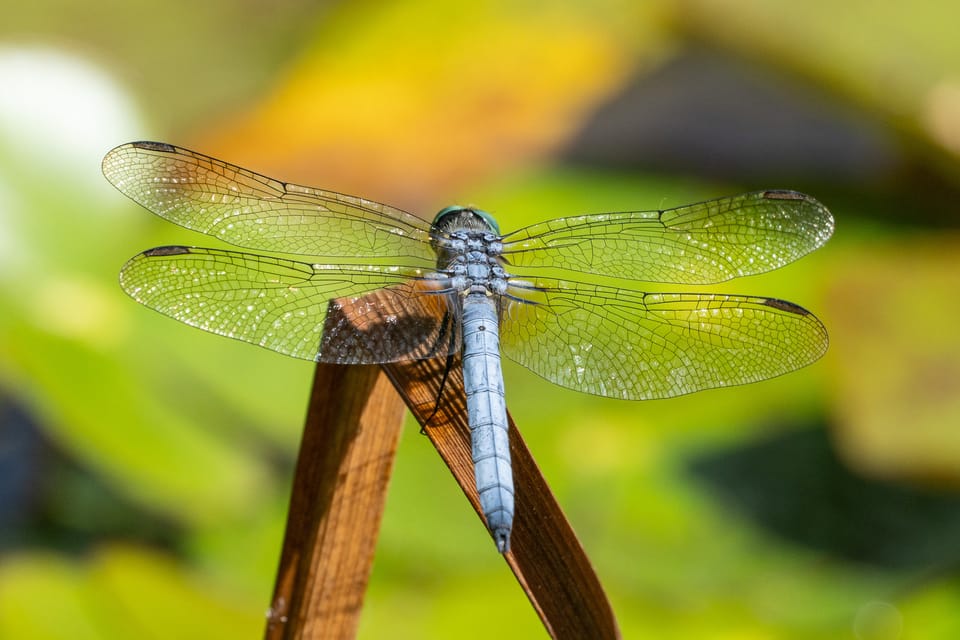EcoWest News, August 12, 2025

Welcome to EcoWest News, a weekly round-up of news and resources that you can put to use in addressing environmental issues and protecting the wild in your community.
Across the West
Human activity (logging, suburban development, recreational mountain biking) and habitat fragmentation are putting pressure on raptors living near urban areas in the Cowichan Valley. [The Discourse]
Additional coal mining in BC’s Elk Valley would lead to increased water pollution (already a cross-border issue) and loss of high-elevation grasslands. [The Narwhal]
18 bat houses in southern Alberta have been sprayed with a probiotic cocktail aimed at preventing white-nose syndrome. [CBC]
Alberta regulations meant to keep old coal mines from polluting streams and lakes are failing and high levels of numerous contaminants are having grave outcomes for aquatic life and their ecosystems. [The Canadian Press]
Champions for our Common Future showcases individuals and organizations dedicated to advancing sustainability in Saskatchewan. [RCE Saskatchewan]
Manitoba is the last in line for water sharing from rivers originating in the Rockies. It’s also the province most dependent on that water for electricity generation. Prolonged droughts would have significant consequences. [The Narwhal]
Across Canada
Canada needs to develop its own energy efficiency policies and programs for appliances and equipment in response to possible defunding of Energy Star by the United States. [Efficiency Canada]
Around the World
“To effectively halt biodiversity loss, protected lands must be placed strategically in areas where threats are most intense and species are most vulnerable.” [Conservation Corridor]
The European Central Bank has announced it will apply a climate risk factor to all future investments to offset the possible financial impact of uncertainties related to climate change. [The Energy Mix]
China’s exports of clean-energy technologies such as solar panels, batteries, and electric vehicles are cutting emissions in other countries. [Carbon Brief]
Light Pollution
Find the best locations for stargazing on an interactive map displaying light pollution, dark sky locations, and weather indicators around the world. [Light Pollution Map]
The reflective glare from the large, flat surfaces of solar farms resembles lakes, attracting birds, bats, and insects. Nano coatings on the panels would make them less disruptive for wildlife. [PV Magazine]
DIY
Help monitor glaciers in Canada’s national and provincial parks by participating in the Icy Initiative. Photos taken at select glacier viewpoints will be analyzed by researchers at the University of Waterloo. [Parks Canada]
Making a Difference
Climate-related tourist taxes are a move from consumption to collaboration, encouraging tourists to take part in the shared responsibility of preservation. [BBC]
A street in Kendal, located in Dark Skies Cumbria, has replaced its modern lighting with 19th-century lamp posts that “dim by 50% from 21:00 to 6:00 to cut electricity consumption and reduce the impact on nocturnal wildlife such as bats and insects.” [BBC]
Communities can preserve mature trees while ensuring safe, walkable sidewalks by rerouting the sidewalk, installing permeable pavers, ramping over roots, narrowing the sidewalk slightly, pruning roots, and using suspended sidewalk slabs. [Strong Towns]
Nature’s Wonders
A curious octopus takes a turn behind the camera and gives a diver a hug. [CBC]
The Genius of Trees, Harriet Rix: “Element by element, trees have learned to control water, air, fire and the ground beneath us, as well as fungi, plants, animals, and even people, shaping them according to their own ‘tree-ish’ agenda.” [The Guardian]
Photo credit: https://www.flickr.com/photos/apmckinlay/54711900352
EcoFriendly West informs and encourages initiatives that support Western Canada’s natural environment through its online publication and the Nature Companion website/app. Like us on Facebook, follow us on BlueSky, X, and Mastodon, or subscribe by email.

Member discussion